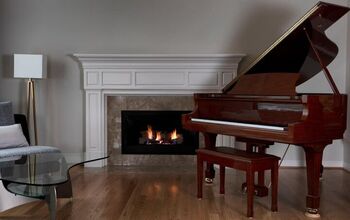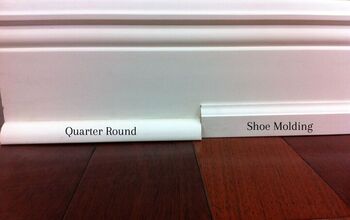Can My Guests Park In Front Of My Neighbor’s House?

It’s difficult to provide parking for all your guests when you have people over for a party. That is especially true if you don’t have a big driveway. Luckily, most neighborhoods have plenty of open parking spaces in front of houses. So, you may wonder, can my guests park in front of my neighbor’s house?
Your guests can park in front of your neighbor’s house if they don’t block their driveway. It’s illegal to block a driveway, and your guests may receive a ticket and have their car towed. Luckily, it’s legal to park in front of a house on a public road for up to 3 hours in most states if you are lawfully parked without blocking the driveway.
If possible, try to tell your neighbors beforehand that you're planning to have a large party where lots of cars will park in front of their houses. This will prevent any conflict and it’s a great way to stay in your neighbor’s good graces. Follow along as we explore everything you need to know for the next time you have people over but don’t have enough space in your driveway for them to park their cars.
Are My Guests Allowed To Park In Front Of My Neighbor’s House?
Your guests are allowed to park in front of your neighbor’s house temporarily. For example, it’s okay if your guests park in front of your neighbor’s house for the day, but it can cause problems if they park there for days. In many states, you can have a car towed if it’s parked in front of your house for 3 or more days.
While it’s legal for your guests to park in front of your neighbors' houses, it is often considered rude. It’s mostly considered rude if you have a big party with many guests that park up and down the street. In that case, it’s courteous to contact your neighbors and let them know before the event.
That way, they won’t be caught off guard and they will appreciate that you were transparent with them. Make sure to tell your guests not to block your neighbor’s driveway as that is illegal. Blocking a driveway carries fines, and you can even get your car towed.
Can My Neighbor Tell Me Not To Park In Front Of Their House?
Your neighbor can tell you not to park in front of their house. However, it’s not illegal to park in front of their house as long as you’re on the street. It is illegal to park on their grass or to block their driveway, but the street is open for parking, unless it’s on a private road.
However, it is worthwhile to listen to your neighbor and respect their wishes to preserve your relationship. Nothing is more uncomfortable than a contentious relationship with a neighbor. You may need to park in front of their house sometimes but try to do it as little as possible if you know it upsets them.
Can You Have A Car Towed For Parking In Front Of Your House?
You can have a car towed for parking in front of your house if it’s on private property. The car owner will have to pay the fees for the towing service in that case. You can also have the car towed if it blocks your driveway or if it is parked in your yard.
Otherwise, there is nothing you can do if they are lawfully parked on a public road in front of your house. You can leave a note on their car and ask that they don’t do it again, but they won’t face legal trouble unless they parked on a private road that they don’t own. Call the county sheriff’s office if someone leaves their car unattended in front of your house for 3 or more days.
Where Should Your Guests Park When You Have A Party?
Ideally, your guests should park in your driveway when you have a party. However, they can legally park on the street and any nearby public road with street parking. Many people understand when their neighbors have guests over that some will park in front of their house.
It’s important to use common courtesy when you park in front of someone’s house. Never block someone’s driveway and avoid parking in front of the walkway to the homeowner’s front door. If possible, make sure to tell your guests what to expect with street parking for your party.
For example, let your guests know if any of your neighbors take issue with people parking in front of their houses. That way, you won’t knowingly disrespect your neighbors and you can avoid conflict. Ultimately, your neighbors should be understanding, as it’s common for people to have parties where guests must park on the street. Just make sure to do the same when your neighbors have a party!
How Close Can You Park To A Driveway?
You can park as close as possible to a driveway without blocking it. Of course, you should leave a little bit of space as a courtesy so it’s easy for someone to pull in or out of the driveway. Make sure that your front bumper doesn’t stick out into the driveway. Double-check your parking job, so you know you have left enough room for the homeowner to get in and out of the driveway.
Can I Park In Front Of My Driveway?
You cannot park in front of your driveway. Even though it’s your property, it’s still illegal to park in front of your driveway. Your guests cannot park in front of your driveway either when you have people over.
One of the reasons that is illegal is because emergency services, such as EMTs and firefighters, won’t be able to get into your driveway if you block it. You can get a ticket if you or a guest blocks your driveway, and your car may be towed.
Summing It Up
Your guests can park in front of your neighbor’s house, however, they will get towed and may get a ticket from the police if they block your neighbor’s driveway. Your neighbor may tell you not to park in front of their house, but it’s not illegal if their house is on a public road.
Let your neighbors know if you’re going to have a big party. That way, they won’t be surprised or annoyed when several people park on the street in front of their houses.
Related Guides

Nick Durante is a professional writer with a primary focus on home improvement. When he is not writing about home improvement or taking on projects around the house, he likes to read and create art. He is always looking towards the newest trends in home improvement.
More by Nick Durante























![10 Most Dangerous Neighborhoods in Baltimore [Updated]](https://cdn-fastly.upgradedhome.com/media/2023/07/31/9075655/10-most-dangerous-neighborhoods-in-baltimore-updated.jpg?size=350x220)



